

At one time, the building held a famous panoramic painting depicting the Battle of Atlanta. But on a warm November afternoon, it was home to real-life scientists, not oil-stippled soldiers, and the scene was anything but a battle.
In fact, it was the picture of collegiality – highly accomplished scientists from Georgia’s research universities, gathered together in Savanna Hall at Zoo Atlanta, once the home of the celebrated Cyclorama. All are members of GRA’s Academy of Scientists, and they had come together for their annual meeting of presentations, knowledge sharing and informal conversation.
“This is one of my favorite days with GRA,” outgoing GRA Board Chair David Ratcliffe told the gathering, “because we get to hear about the truly amazing work you’re doing. Georgia is truly fortunate to have a world-class group of scholars like this in our state.”
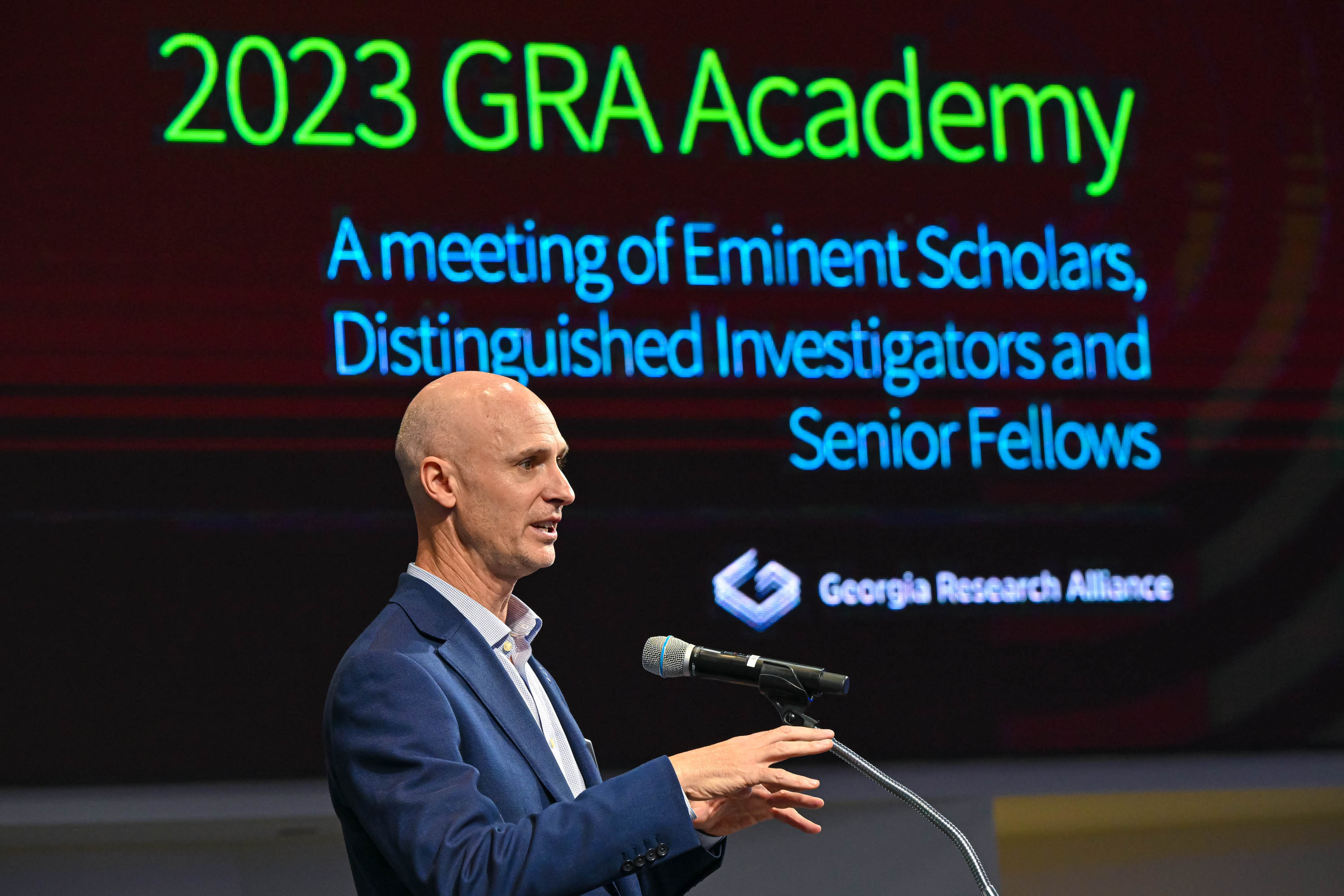
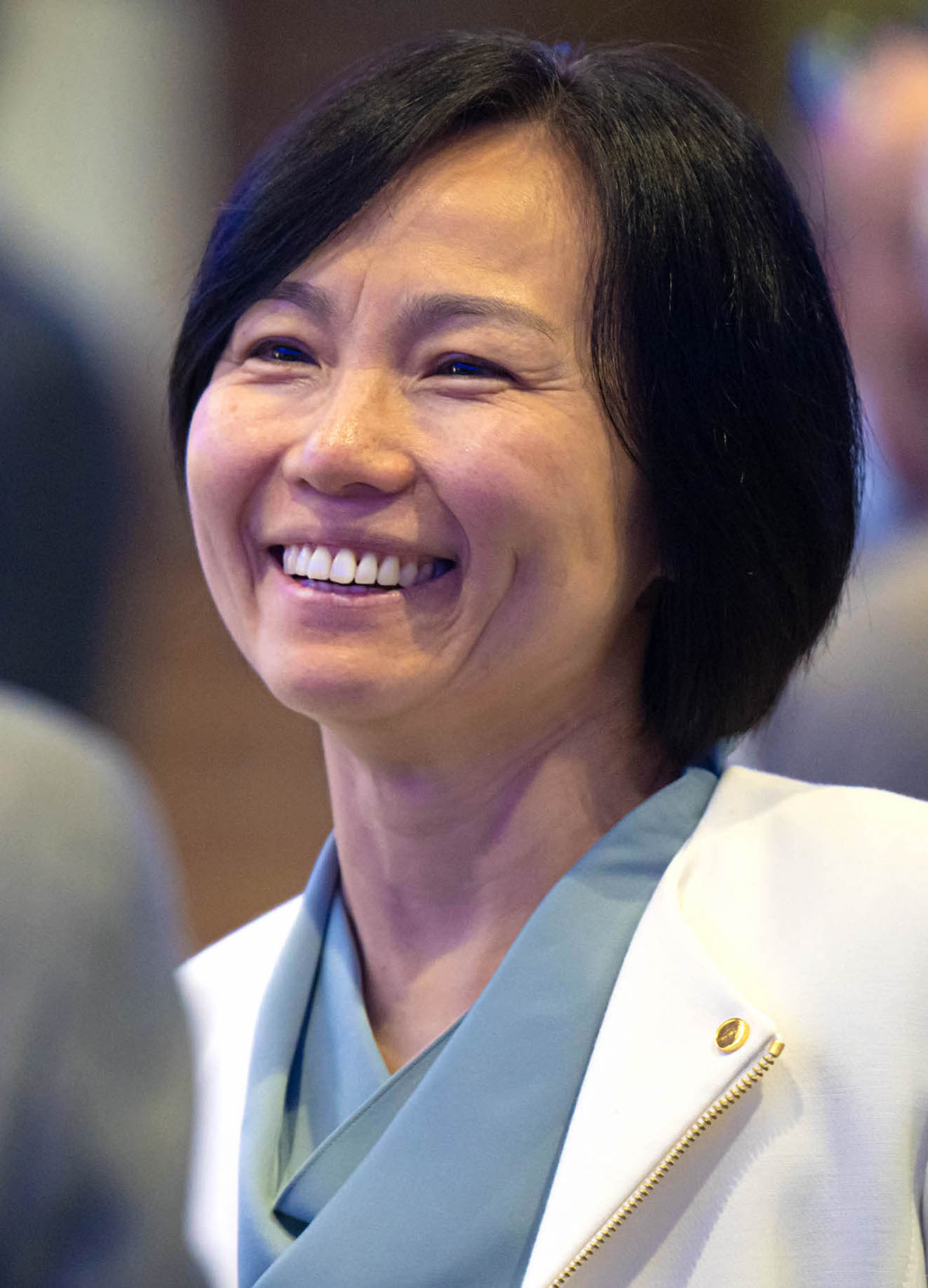
Above: GRA President and CEO Tim Denning; GRA Eminent Scholar Qin Wang of Augusta University at the Nov. 7 meeting of the Academy.
Zoo Atlanta President Raymond King brought greetings, and newly elected GRA Chair Lizanne Thomas welcomed the Academy, comprised of GRA Eminent Scholars, Distinguished Investigators and Senior Fellows. Thomas then introduced Tim Denning, a week into his term as GRA president and CEO, who shared his career arc from lab scientist to university research leader – and talked of continuing GRA’s trajectory of impact on the state.
“This alliance of government, industry and academia is rock-solid,” Denning said, “and the GRA idea is very powerful. The question before us is how to take the next steps to deepen our impact on Georgia, its economy and its people.”
Following Denning’s remarks were brief presentations by five of the Academy’s newest members, each of whom shared an overview of what they were working on inside the lab:
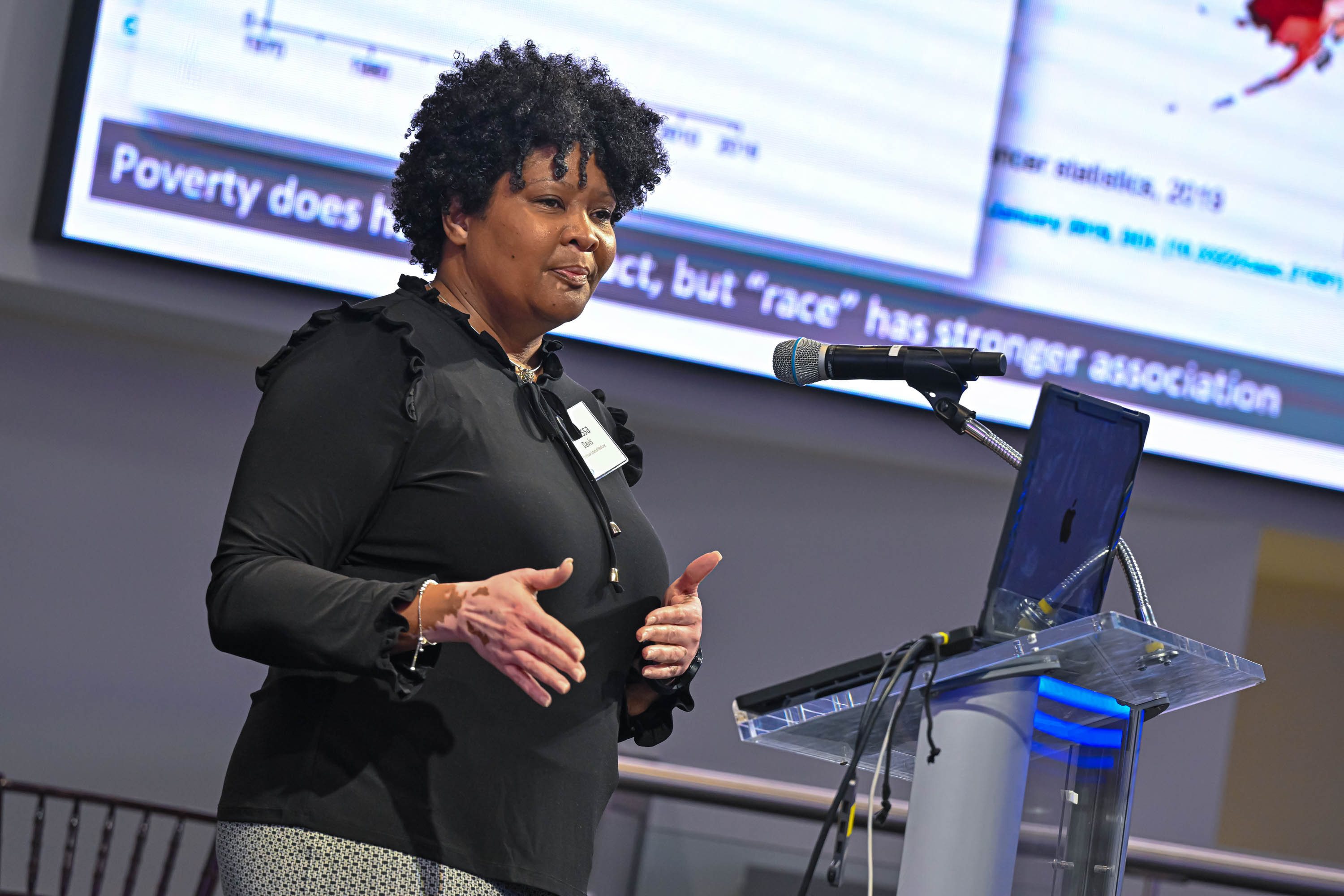
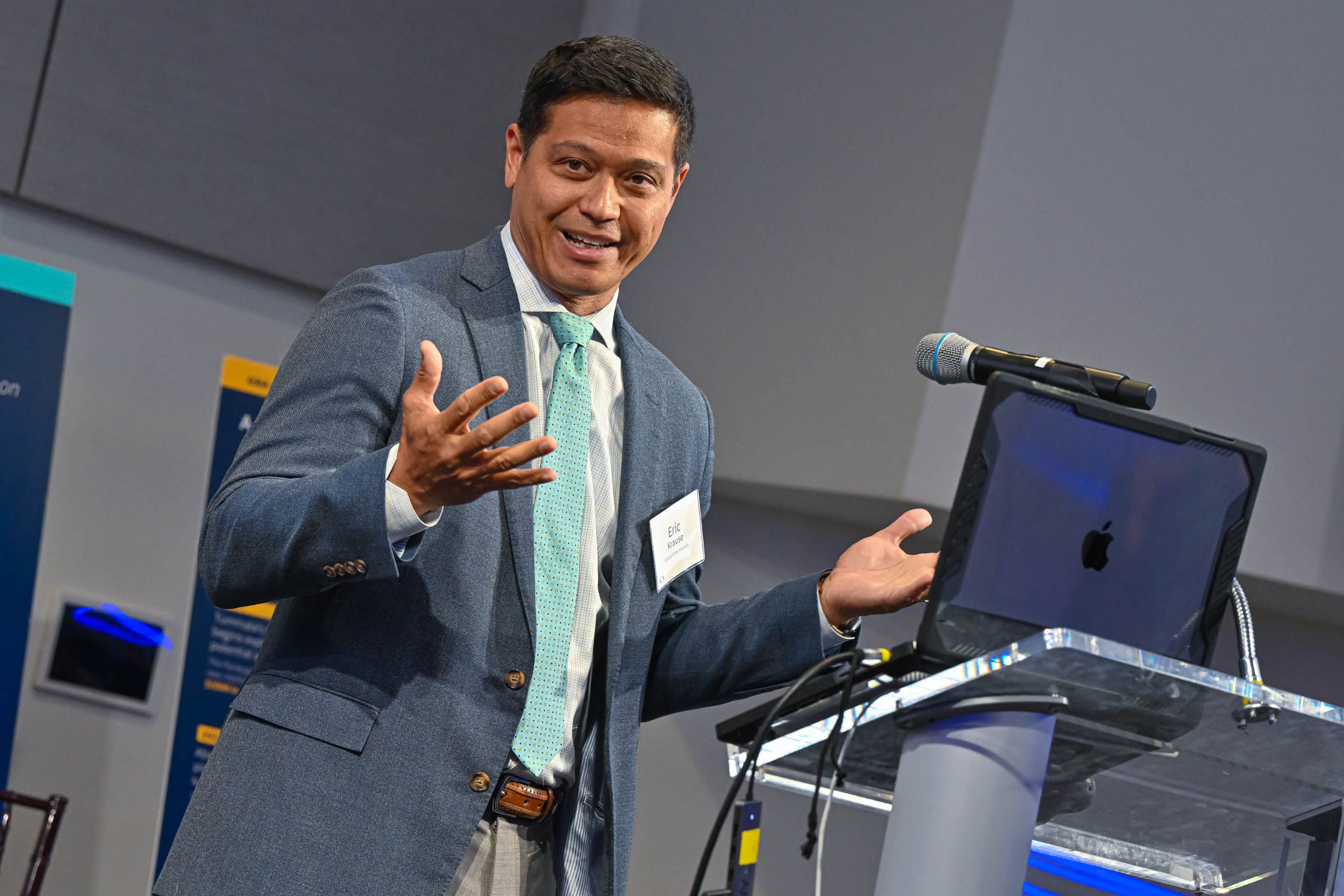
Above: GRA Distinguished Investigators Melissa Davis (Morehouse School of Medicine) and Eric Krause (Georgia State).
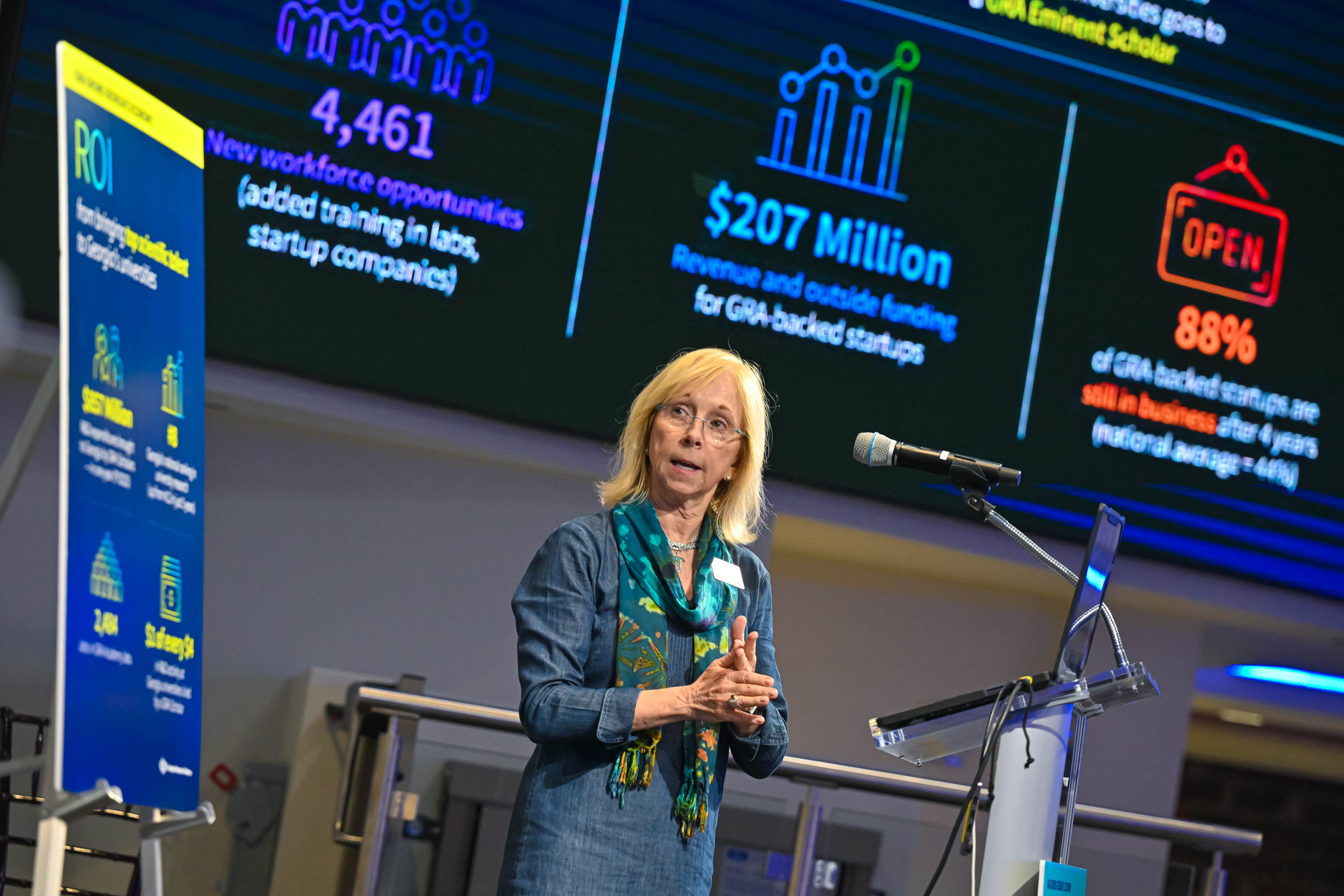
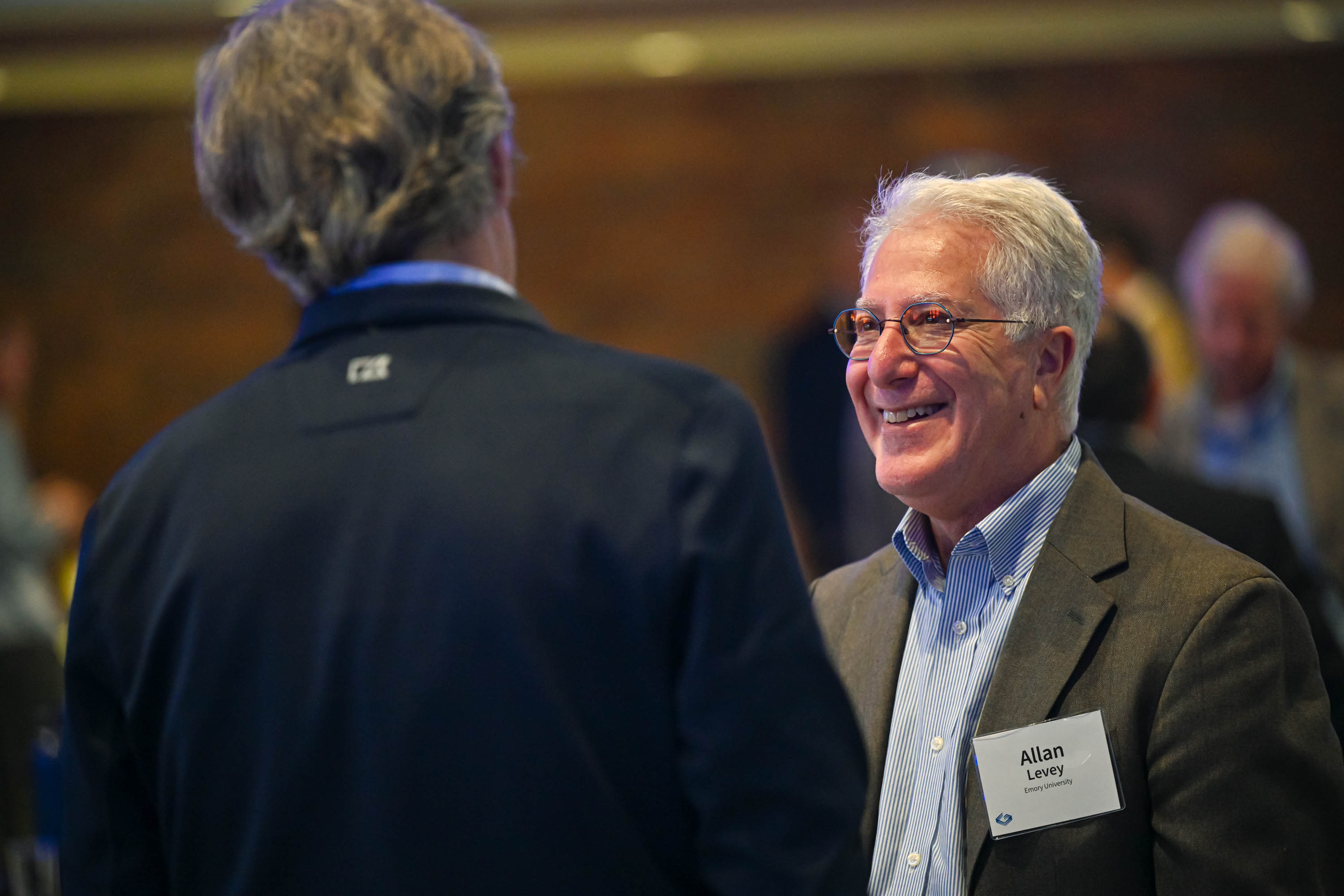
Above: Former GRA President and CEO Susan Shows; GRA Senior Fellow Allan Levey of Emory University.
A pair of GRA program reports followed the scientific presentations, beginning with by GRA Vice President Amanda Schroeder’s overview of the Workforce Development Initiative. The anchor of the initiative, she said, is the GRA Student Scholars program, which creates opportunities for Georgia undergraduates who are underrepresented in STEMM areas to experience university research. “The program came out of this Academy, and it’s been an unqualified success,” Schroeder said. “This year, we’ve worked to expand it from a summer experience to a year-round opportunity.”
GRA Senior Advisor and former President/CEO Susan Shows shared a high-level view of the impact the Academy and Alliance have on the state. “The research productivity of this Academy is a major part of GRA’s overall impact,” she said. “For example, the 2,484 jobs created in university labs would not exist if you weren’t successful in attracting grants and contracts.”
That impact is not confined to the growth in university research that GRA has driven – a point made clear in the afternoon’s final presentation. It centered on a startup company, Matmerize, that has received early investment and counsel from GRA.
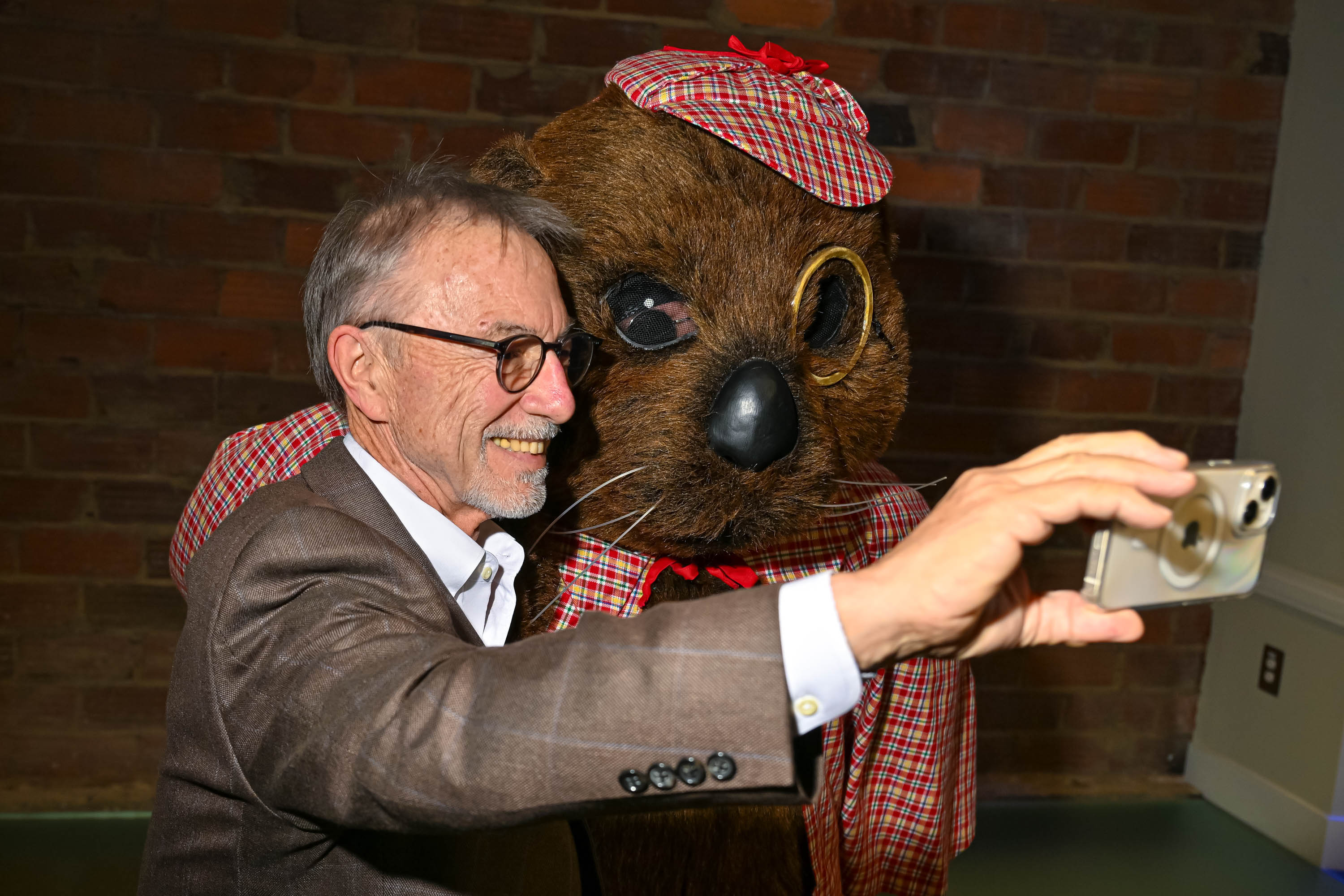
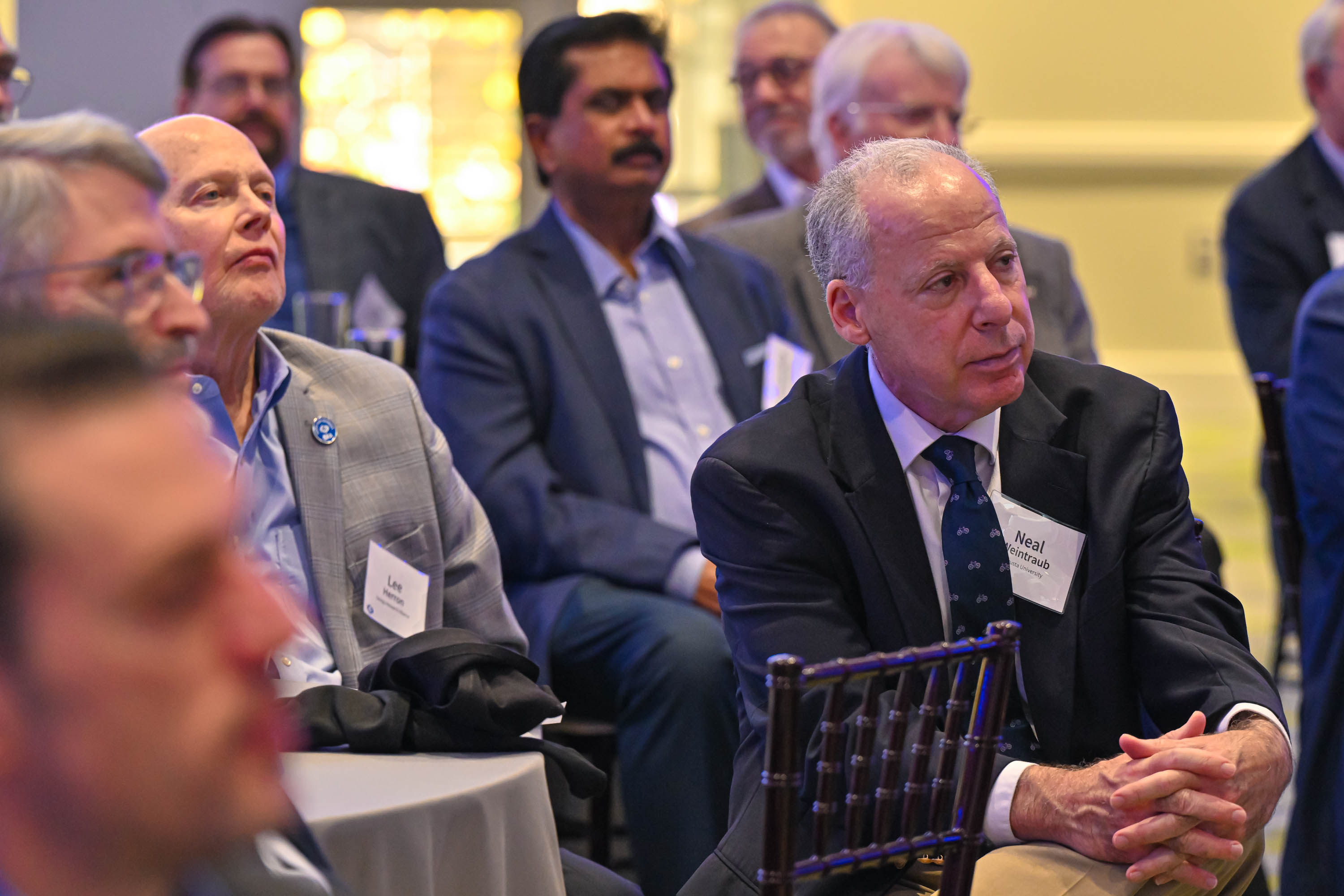
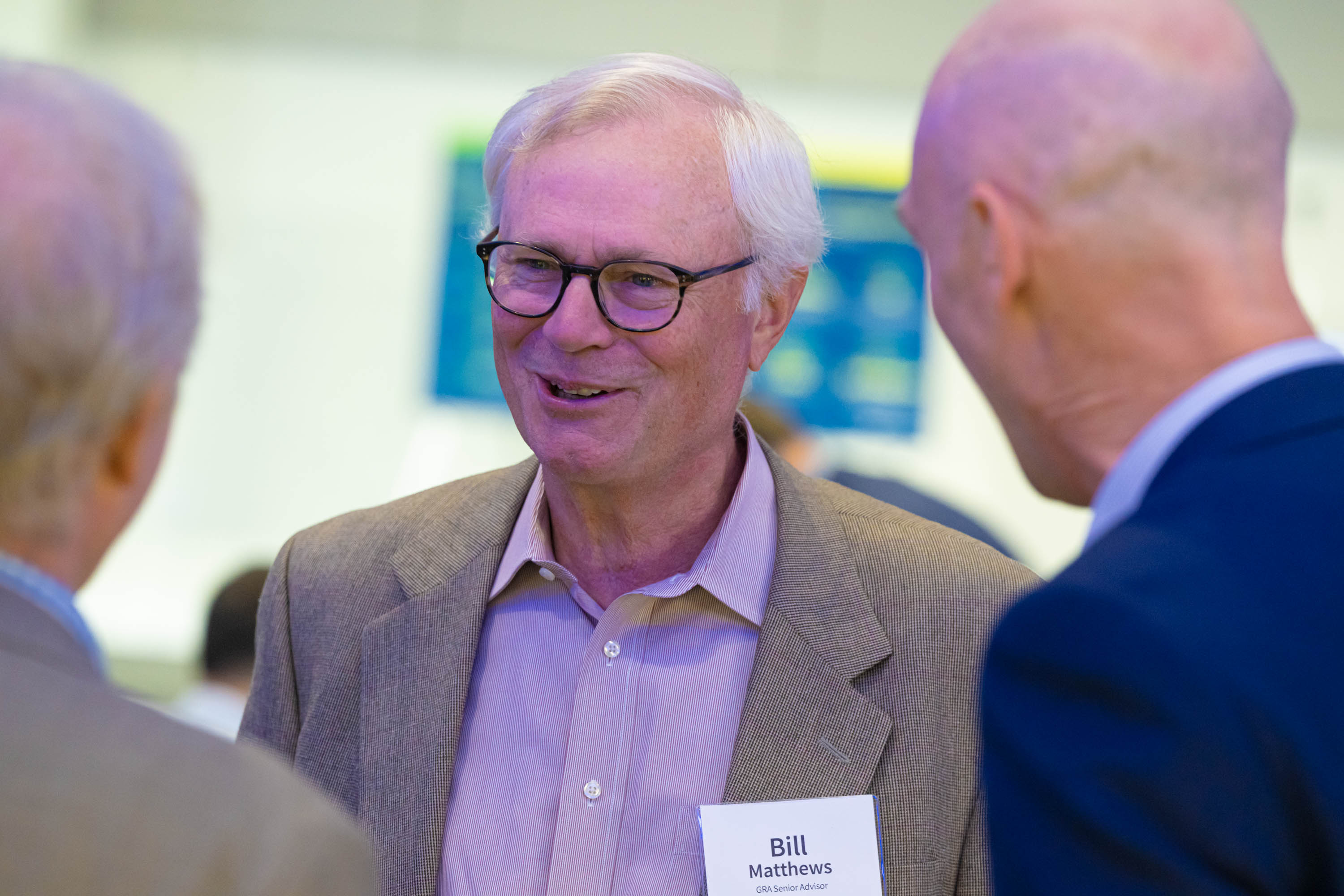
Above: GRA Senior Advisor David Lee with Zoo Atlanta's Spotter; GRA Eminent Scholar Neal Weintraub (Augusta University) and colleagues; GRA Senior Advisor Bill Matthews.
GRA Eminent Scholar Rampi Ramprasad of Georgia Tech described Matmerize as “the new standard” in the development of polymers, the ubiquitous large-molecule substances that make up many products and materials. He was joined by GRA Senior Advisor Bill Midgette and GRA Entrepreneur in Residence Jon Goldman in tracing Matmerize’s rapid rise from concept to market.
Ramprasad described how the Matmerize platform uses machine learning to speed the creation of new polymers by lessening trial and error. Noting that products like nylon, Teflon and Kevlar took a decade or longer to develop, Matmerize has the potential to dramatically reduce such timetables.
“The Phase 1 grant we received from GRA’s venture development program was our first big milestone in funding,” Ramprasad said, adding that “for me, as an academic, this has been a super-rewarding journey.”
Throughout the afternoon, members of the Academy had several opportunities to talk informally with each other. The sight of renowned scientists working in different fields and at different universities sharing their work and experiences is something to behold: A reminder that Georgia has something truly unique among all other states.